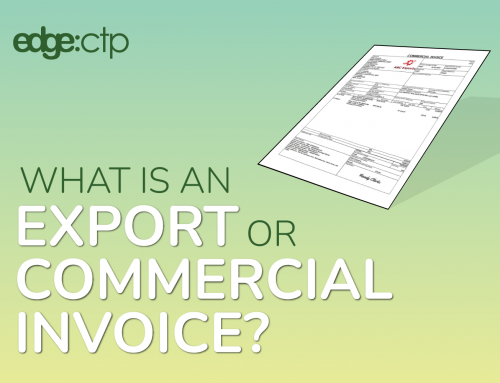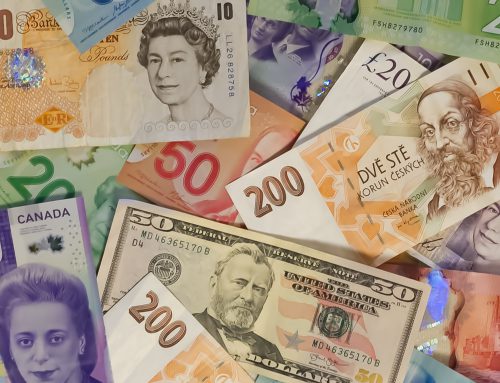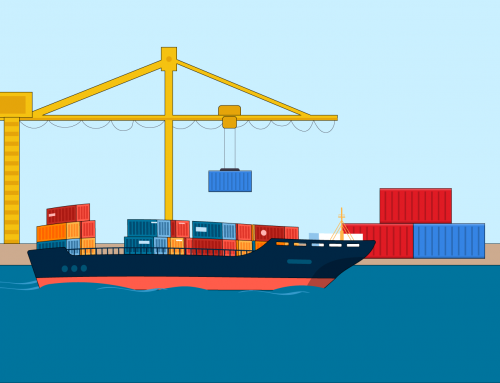I’m Geoff Runcie and at the start of 2015, I was lucky enough to be involved in a series of sessions with the International Trade expert, Murdo Beaton. We were accompanied by Abdul Mann, whose team has built a range of international trade solutions under the brand EDGE. Abdul helped to explore some of the ideas Murdo presented in his answers about payment protection in international trade.
Today you’ll hear one of ten questions presented to Murdo, but if you want access to the entire session or future sessions, there is a link at the end of this blog. Alternatively, feel free to drop me an email on Support or visit www.edgectp.com.
A full transcript of this session has been provided below.
Geoff:
What payment protection do I have against non-payment?
Murdo:
Yes, getting paid. This is what it’s all about, isn’t it? This is what we’re in the business for, and if we cannot convert our product or service into cash then we have a big problem. In overseas markets, if we cannot get that cash repatriated to our bank account we have an even bigger problem. So it is massively, massively important to safeguard our financial interests in the form of payment for our product or service. Now we can of course in the first instance contribute to that safeguard by ensuring we are not placing our product or financial reward at risk by dealing with entities whose credibility might be questioned, or who are trading in an environment where cash flow could be a big problem for them as my buyer in terms of paying me. So I need to know about my buyer and how they behave in their sector.
What’s their sector like, the sector that operates in their domestic market? Is it a sector that is very poor at paying accounts, which might mean that my buyer from time to time might come under cash flow problems? This could interfere of course with my buyer’s ability to pay me. The same applies to the distributor level, not so much at the agent level but at the distributor level, it can also apply. So I need to make sure that the distribution channel that I have, be that a distributor or an end-user, are not locations where I am overexposing the financial interests of my business.
Now having said that we then look at what instrumentation can we put into place to improve the security of our payment? Alright, now in the first instance we could always say we’re not going to give any credit at all. We actually want payment upfront, which is the ideal position and one that I would always invite exporters to attempt.
(Scroll down to continue……)
Abdul:
Get paid first.
Murdo:
Get paid upfront. Not so easily achieved in a global market where competition is fierce and where the offering of credit is in actual fact slowly becoming the norm. But, in offering credit we still have financial instruments that we can use that give us some additional payment protection. We have instruments that banks can provide us with called Documentary Letters of Credit. We have instruments like Bills of Exchange and we have instruments like Promissory Notes.
These sorts of financial instruments can in fact enhance the security of our monies, but it is down to us at the end of the day to actually administer the cash management of our business. We should only give credit to entities where we feel all of the required disciplines have been put in place to safeguard our money. Now I know it is tempting when huge levels of business are being offered, that a business may choose to actually err on the side of recklessness at times.
Abdul:
Or trust as they call it right? (Laughs)
Murdo:
(Laughs) Actually giving extended credit when it should never be offered or in actual fact given. But, there are instruments there, I’ve mentioned a few, there are others that can be considered as well. I would very much suggest to a business leader that when it comes to safeguarding your money abroad, you can never do enough research in terms of the methodology that you should put in place.
Abdul:
So one way the business owner could do that is to go to their bank and ask the bank to act as an intermediary in the trade and become a third party. They get a Letter of Credit from their bank and have it as a third party intermediary level, so that will give you that level of payment protection you’re looking for.
Murdo:
The bank is acting, in most international transactions, as the owner’s broker. The bank is the intermediary through which, the cash is exchanged.
Abdul:
And needless to say, they charge for that service.
Murdo:
(Agreeing) And needless to say, they charge for that.
Abdul:
Do they charge that on a percentage of the trade value or just charge it as a flat fee, generally?
Murdo:
In some cases it’s a flat fee, in other instances it’s sometimes a small percentage of the value. Now it’s up to each individual business to actually negotiate their own position with their bank, but again, in order to be able to negotiate the best position, it’s imperative that the business leader knows almost as much about these financial issues as the bank does.
So, unless you really trust your bank to an absolute extent where you can actively say “I don’t need to know about these things because my bank will always guide me in the right direction.” If that’s the philosophy that you have then fair enough if you’re confident in that philosophy. But my advice would be to learn about all these things and then go and talk to your bank. Now, where you learn it from, again there are government agencies (Scottish Enterprise, UKTI) all of whom offer you assistance in understanding these things better. And getting a better understanding of them, with which you can go to your bank manager and discuss, in a professional manner across the table from them.
Abdul:
This also kind of touches on the trade finance piece in some ways. Would that have anything to do with some of the government agencies that provide a trade finance route so that you can finance the trade?
Murdo:
Yes of course!
Abdul:
But does that actually give you payment protection, or does that just kind of give you the financial….?
Murdo:
It just actually provides the cash sometimes, with which you can actually do the business, rather than not do it. But it does not remove the need for the financial discipline that I’ve been speaking about. It does not do that. Now, talking about the international market in this term you would say “Oh well, this is totally different from the domestic market.” Well, it’s not! I mean, the same risk applies in the domestic market, and there are hundreds and thousands of companies who will vouch for the fact that a domestic market is not as wholly credible as we might like to think it is.
Abdul:
There are rouge traders everywhere (laughs).
Murdo:
(Laughs) There are rogue traders everywhere. So we cannot just sit back and say “Oh, this is so different.” In actual fact, these financial disciplines that the overseas market might actually impact on business will do the business well in the domestic market because it’ll show them, these are things we could be doing with our own domestic customers. Gaining an even further competitive advantage.
I have often said this. Where in actual fact, companies have negotiated a financial position for their exporting activities with certain elements in it, which could be used in the domestic market, but hadn’t been used because in the past there hadn’t appeared to be a need for it. But in using them in the domestic market it actually gives a competitive advantage, which can translate itself into increased profitability in the domestic market. So, yes, your domestic market can learn from your overseas market experiences.
Abdul:
Which comes back to what we said earlier. In terms of going global, you need to have some systems and processes in place, which work for both your domestic and international markets.
Geoff:
I hope you enjoyed this audio about payment protection. If you’d like more information on international trade, go to our Blog.





